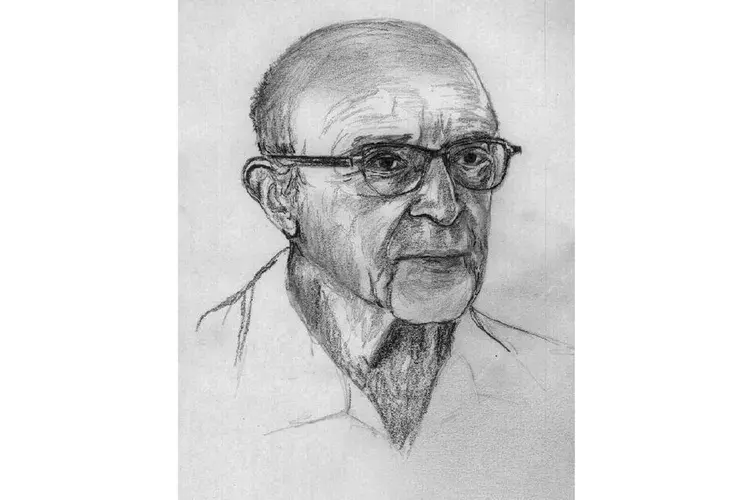

Irène de Palacio
4 déc. 2025



Dernière mise à jour : 26 nov. 2023

Carl Rogers (1902-1987)
Extract from :
Empathic: An Unappreciated Way of Being
EARLY DEFINITIONS
Many definitions have been given of the term, and I myself have set forth several. More than twenty years ago, I attempted to give a highly rigorous definition as part of a formal statement of my concepts and theory. It went as follows:
The state of empathy, or being empathic, is to perceive the internal frame of reference of another with accuracy and with the emotional components and meanings which pertain thereto as if one were the person, but without ever losing the ''as if" condition.
Thus it means to sense the hurt or the pleasure of another as he senses it and to perceive the causes thereof as he perceives them, but without ever losing the recognition that it is as if I were hurt or pleased and so forth. If this "as if" quality is lost, then the state is one of identification.
(...)
An example may clarify both the concept and its relation to empathy.
A man in an encounter group has been making vaguely negative statements about his father. The facilitator says, "It sounds as though you might be angry at your father."
The man replies, "No, I don't think so."
"Possibly dissatisfied with him ?"
"Well, yes, perhaps" (said rather doubtfully).
"Maybe you're disappointed in him."
Quickly the man responds, "That's it ! I am disappointed that he's not a strong person. I think I've always been disappointed in him ever since I was a boy"
Against what is the man checking these terms for their correctness ? Gendlin's view, with which I concur, is that he is checking them against the ongoing psychophysiological flow within himself to see if they fit. This flow is a very real thing, and people are able to use it as a referent. In this case, "angry" doesn't match the felt meaning at all; "dissatisfied" comes closer, but is not really correct; "disappointed" matches it exactly, and encourages a further flow of the experiencing, as often happens.
A CURRENT DEFINITION
With this conceptual background, let me attempt a description of empathy that would seem satisfactory to me today. I would no longer be terming it a "state of empathy," because I believe it to be a process, rather than a state. Perhaps I can capture that quality.
An empathic way of being with another person has several facets. It means entering the private perceptual world of the other and becoming thoroughly at home in it. It involves being sensitive, moment by moment, to the changing felt meanings which flow in this other person, to the fear or rage or tenderness or confusion or whatever that he or she is experiencing.
It means temporarily living in the other's life, moving about in it delicately without making judgments; it means sensing meanings of which he or she is scarcely aware, but not trying to uncover totally unconscious feelings, since this would be too threatening.
It includes communicating your sensings of the person's world as you look with fresh and unfrightened eyes at elements of which he or she is fearful. It means frequently checking with the person as to the accuracy of your sensings, and being guided by the responses you receive.
You are a confident companion to the person in his or her inner world. By pointing to the possible meanings in the flow of another person's experiencing, you help the other to focus on this useful type of referent, to experience the meanings more fully, and to move forward in the experiencing.
To be with another in this way means that for the time being, you lay aside your own views and values in order to enter another's world without prejudice. In some sense it means that you lay aside your self; this can only be done by persons who are secure enough in themselves that they know they will not get lost in what may turn out to be the strange or bizarre world of the other, and that they can comfortably return to their own world when they wish.
Perhaps this description makes clear that being empathic is a complex, demanding, and strong — yet also a subtle and gentle — way of being.




